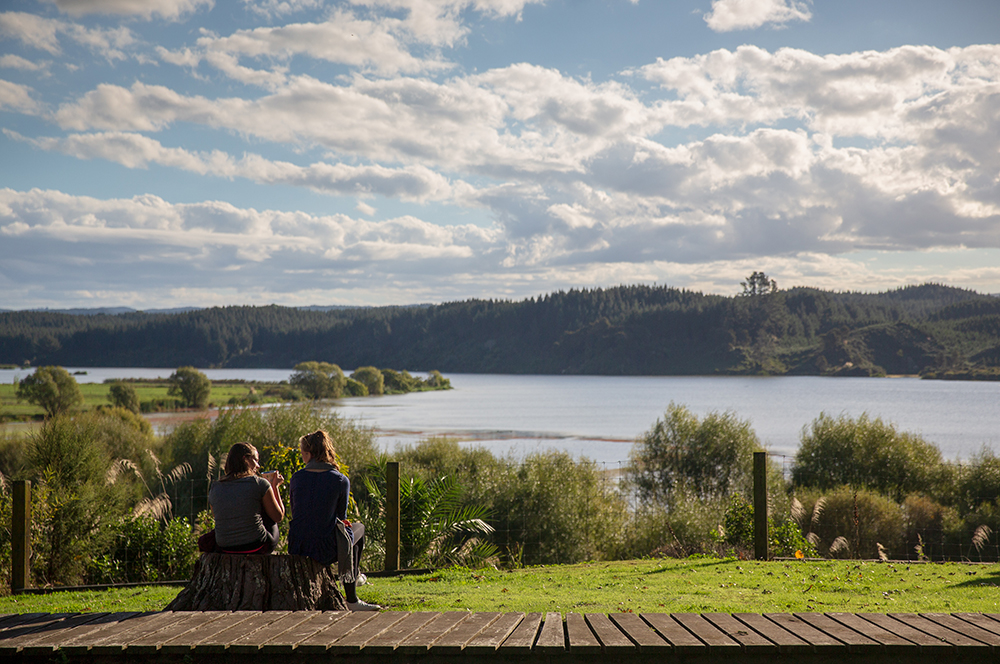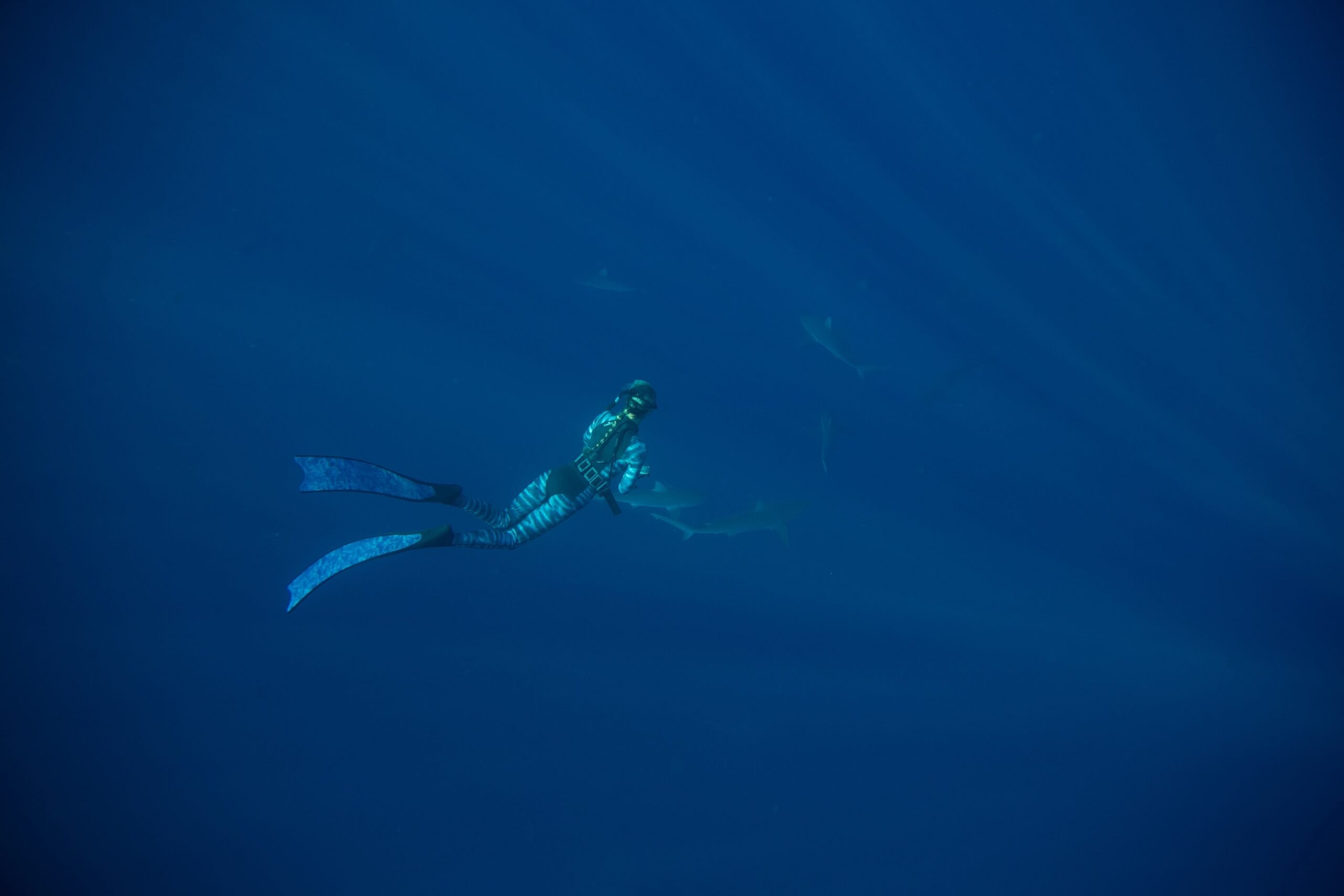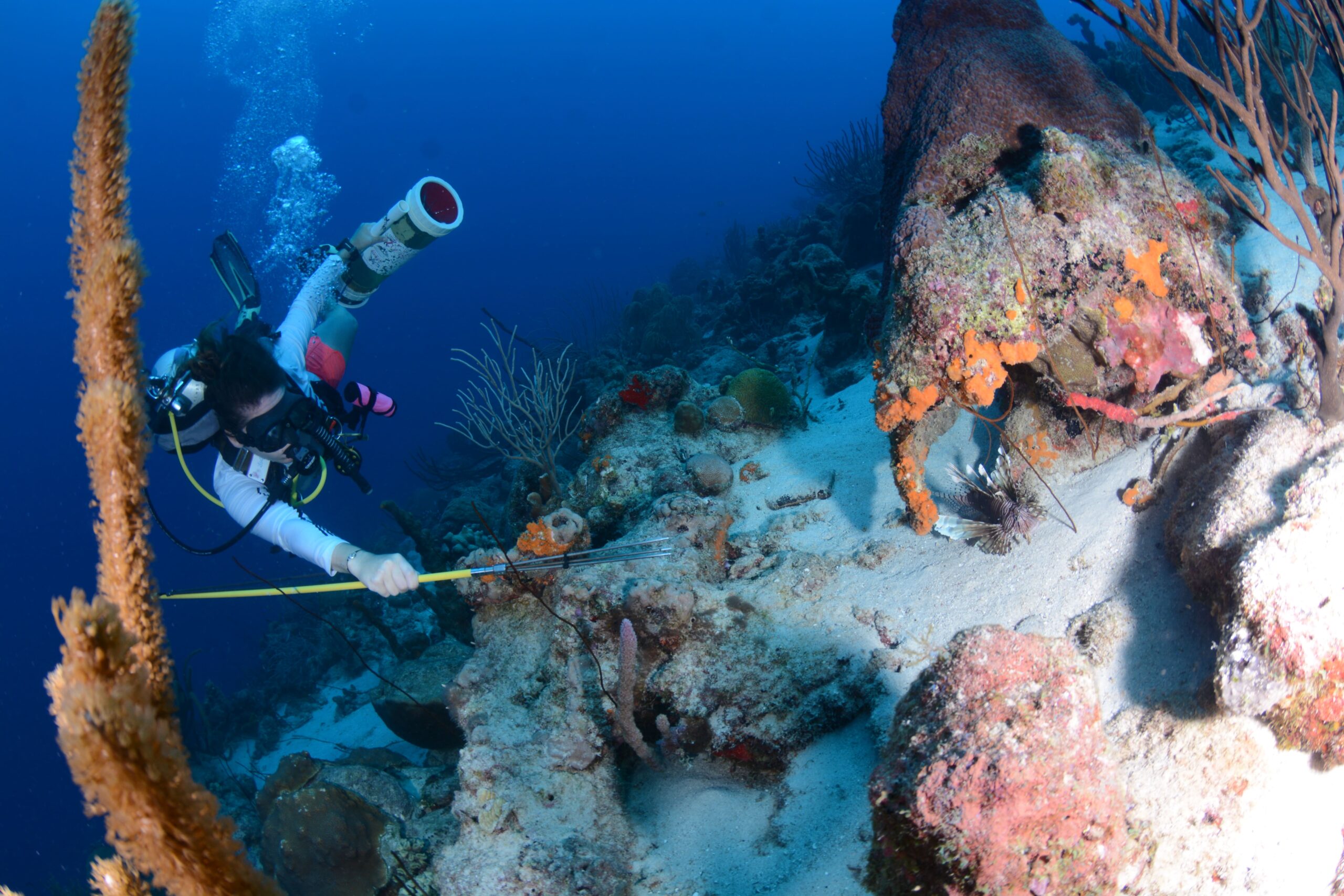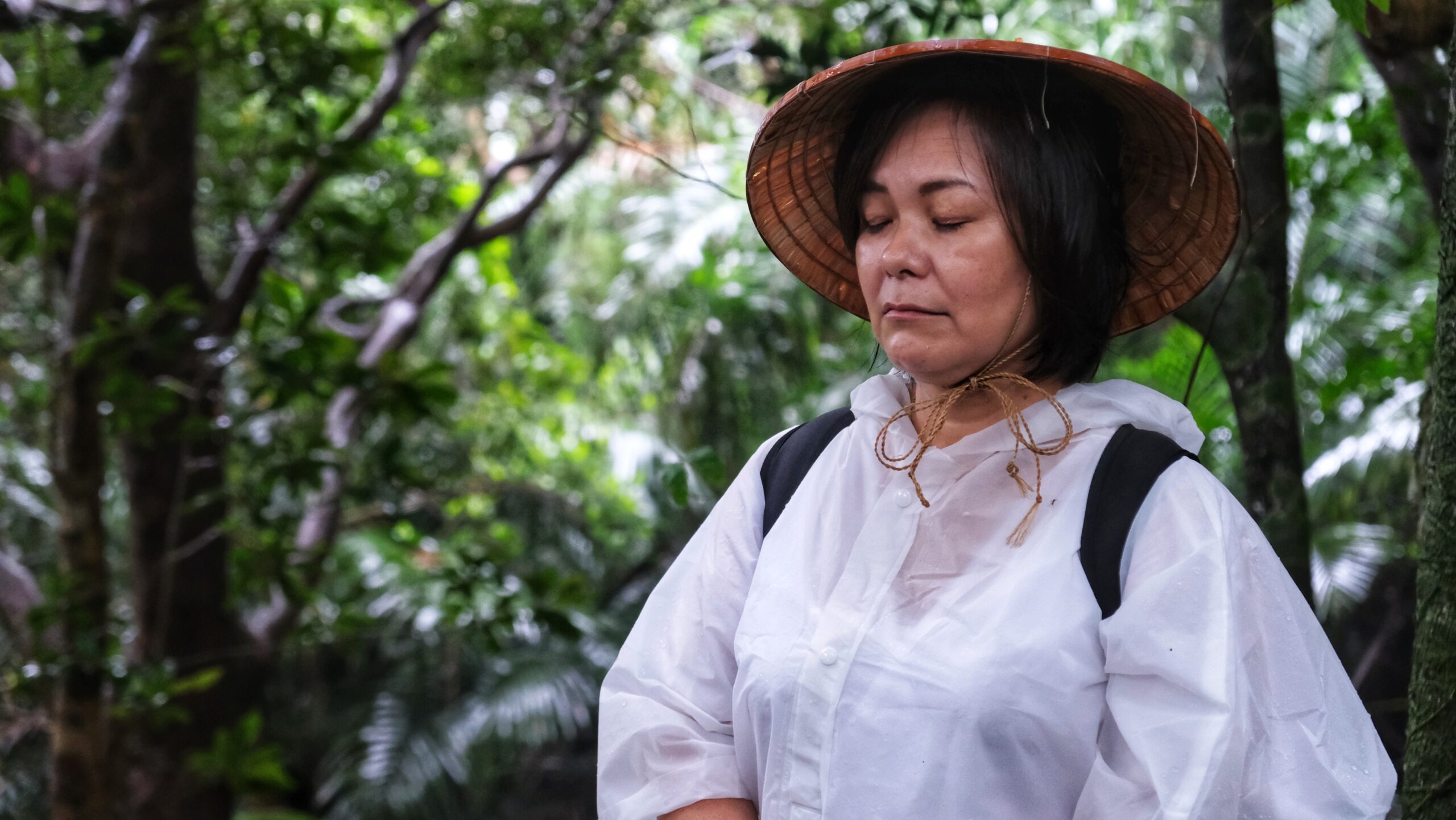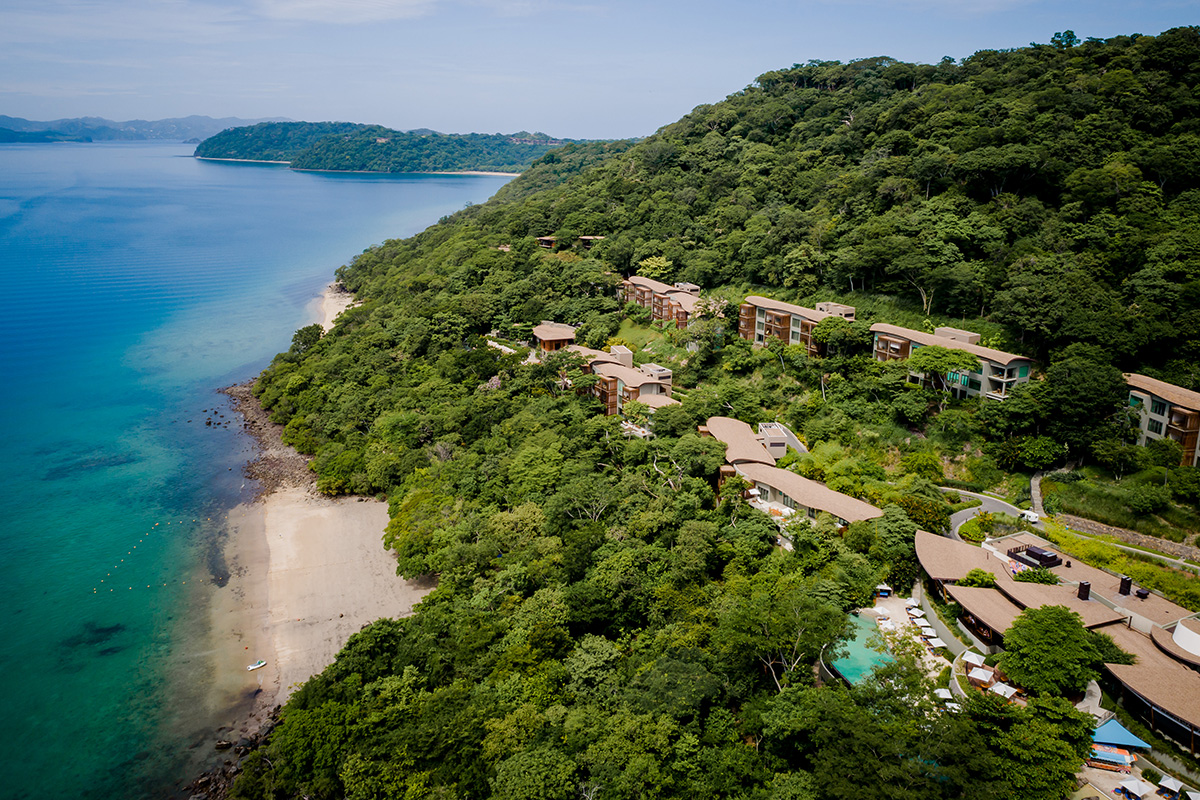“In the 1940s, people typically owned far fewer items of clothing; the average person in the United States had an estimated 20-30 pieces.“
If you’ve ever watched old movies or current ones that depict the styles of men’s clothing worn before the 1960s (so yes, you have), then you might have noticed that everyone looks well-tailored. Even men in lower social and economic classes wore hats and suit jackets with flair. Why? Because they owned fewer but better, hand sewn pieces.
In the 1940s, the average person in the United States had an estimated 20-30 pieces of clothing. This number was influenced by a few factors including the economic constraints of the Great Depression, World War II rationing, and a cultural emphasis on mending and reusing garments.
In contrast, today’s consumer culture is marked by fast fashion and mass production. On average, it is estimated that modern consumers have around 150-300 pieces of clothing, with some studies suggesting even higher numbers, especially in wealthier countries. This shift reflects changes in production, marketing, and societal attitudes toward clothing, with a greater focus on trends, price, and convenience.
Today, the pendulum for conscious consumers has swung back to better, more durable items. From an environmental standpoint, this trend reduces harm by minimizing resource consumption and pollution which helps lower the carbon footprint of the fashion industry and the consumer. It also leads to less waste, reducing the volume of clothing discarded in landfills. Ethically, sustainable fashion supports fair labor practices while helping to preserve or revive textile industries in underemployed communities.
Here’s a list of Azure Road’s favorite men’s wear brands.
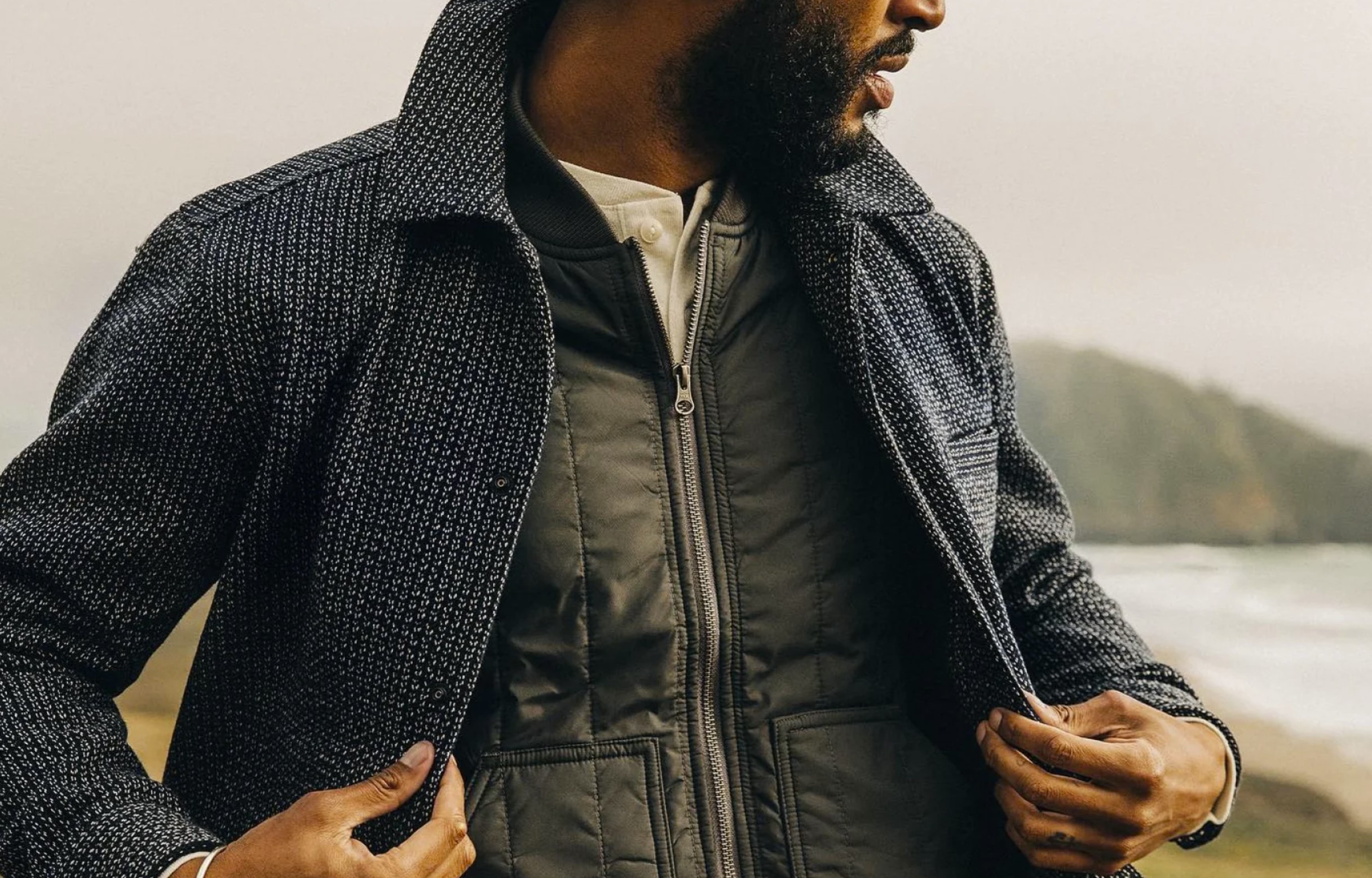
Image courtesy of Taylor Stitch.
Taylor Stitch
North Stars: Certifications, Community Support, Waste Management
Taylor Stitch, founded in 2008 in San Francisco, has become the go-to shop for men seeking rugged Tom Hardy style blending classic American workwear with modern tailoring. Their clothing features durable fabrics and attention to detail, making it suitable for both outdoor adventures and urban life. Taylor Stitch specializes in shirts, denim, and outerwear. They use organic and recycled materials, practice responsible sourcing, and employ environmentally-friendly production processes. Additionally, their “Restitch” program promotes the repair and reuse of garments, reducing waste, and extending product life.
Price Range | $100-300
Best For | Button-downs, jackets, and hoodies
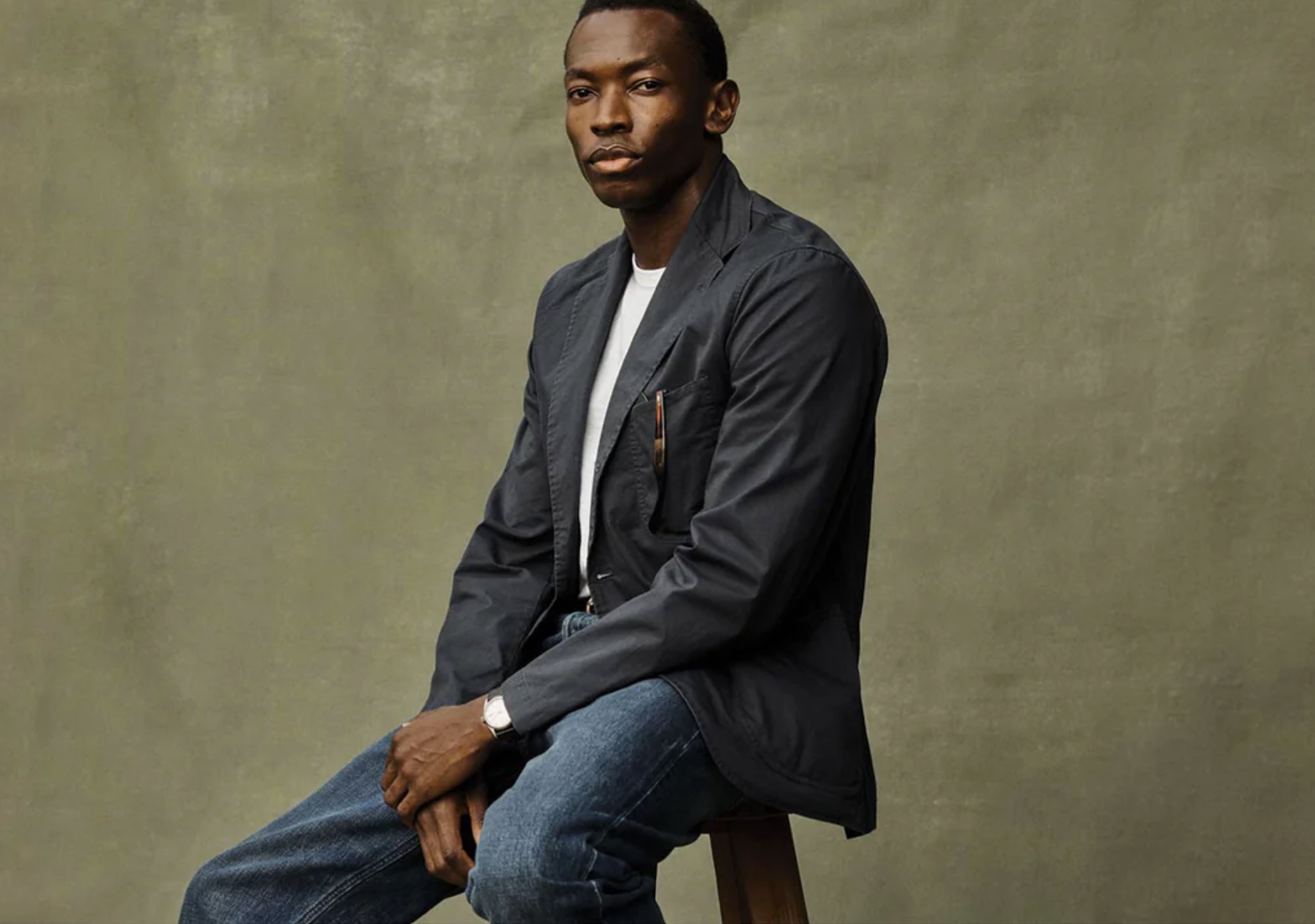
Image courtesy of Buck Mason.
North Stars: Community Support, Waste Management, Production and Consumption
Buck Mason, founded in 2013, is a men’s apparel brand that emphasizes timeless, American-inspired style with a modern twist. Their clothing is known for its minimalist designs, quality craftsmanship, and a focus on essential wardrobe staples like t-shirts, jeans, and outerwear. Buck Mason’s style is versatile and understated, making it suitable for everyday wear. The brand is committed to sustainability by using durable, high-quality fabrics and local manufacturing to minimize their environmental impact. They aim to create pieces that last, reducing the need for frequent replacements and promoting a more sustainable approach to fashion consumption, while manufacturing in America, including the revival of The Mohnton textile in Eastern Pennsylvania, dating back to 1873.
Price Range | $100-300
Best For | Cozy hoodies and sweaters
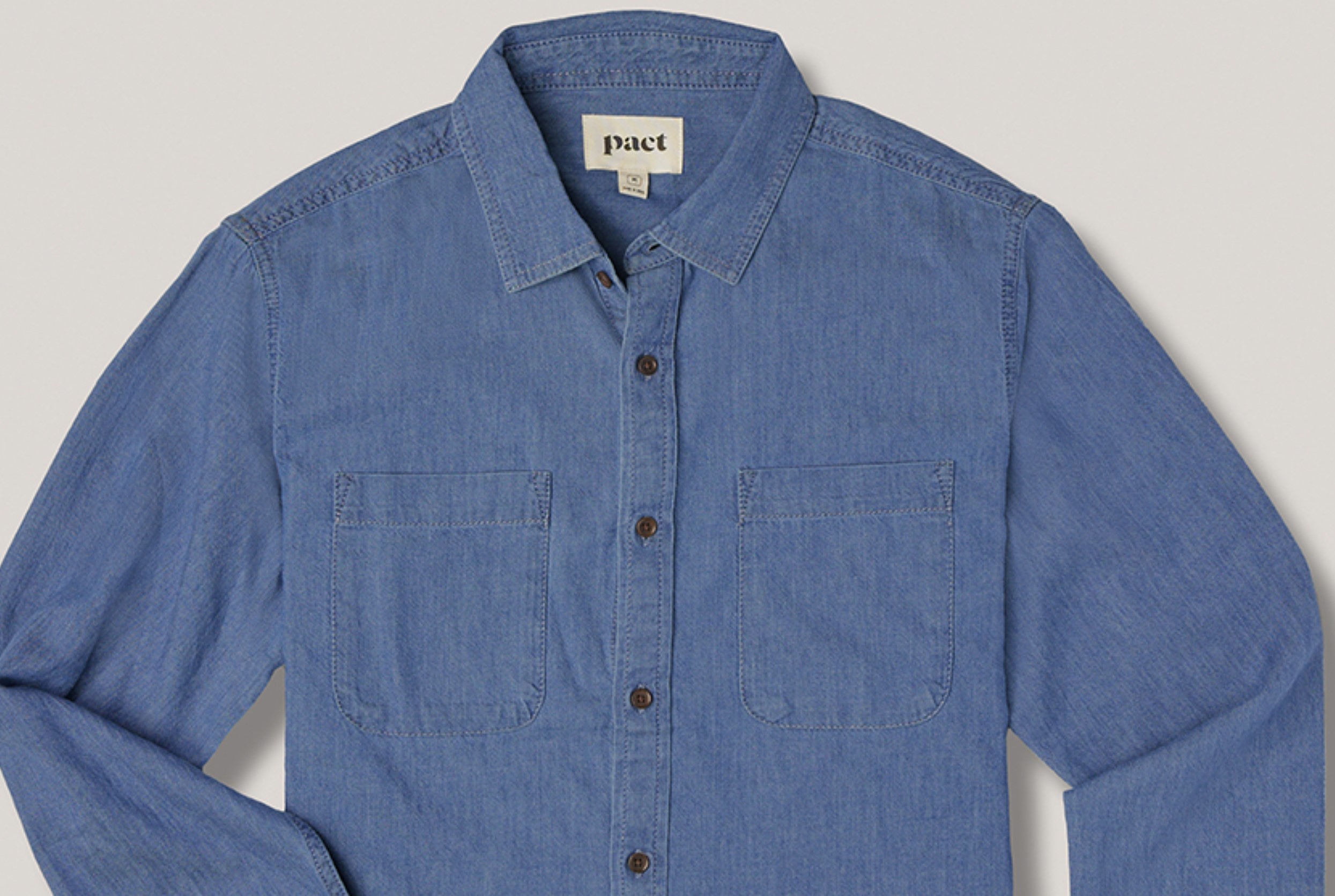
Image courtesy of Pact.
North Stars: Community Support, Water Management, Certifications
PACT was founded in 2009 by CEO Brendan Synnott, the serial entrepreneur behind Bear Naked granola. The brand focuses on creating affordable wardrobe essentials with a casual and comfortable style. Their clothing is made primarily from soft organic cotton, a material that uses less water, energy, and pesticides than conventional cotton. Pact certifies its ethical claims by partnering with third-party organizations, including Fair Trade USA and the Global Organic Textile Standard (GOTS). PACT started out with t-shirts, underwear, and hoodies, but the company’s twill pants and button-downs have developed a following of their own.
Price Range | $30-$150
Best For | Twill pants, chambray button-downs
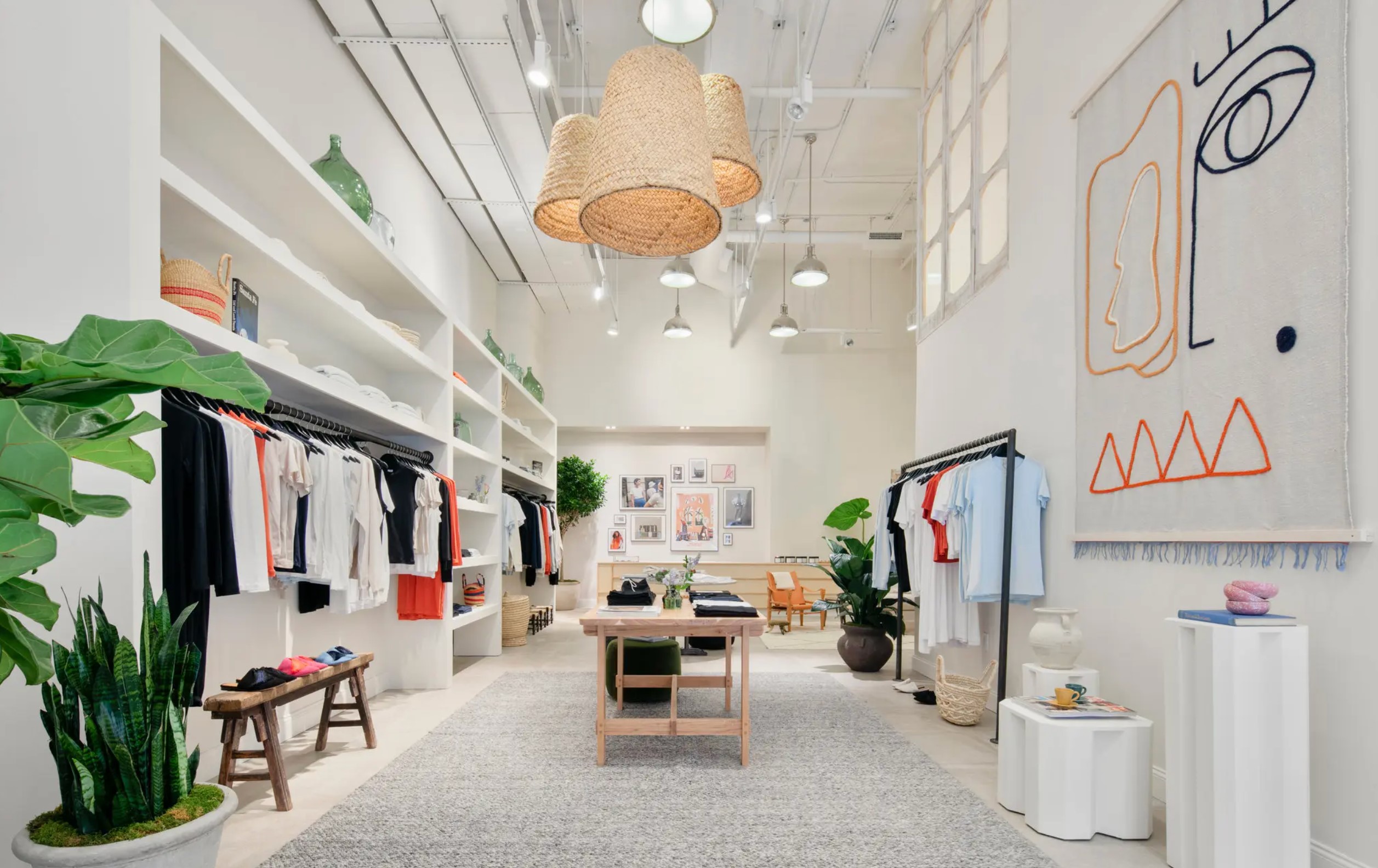
Kotn store in NYC. Image courtesy of Kotn.
North Stars: Certifications, Waste Management; Community Support
Crafted from Egyptian cotton, Kotn’s incredibly soft basics hit many sustainability goals. The company uses OEKO-TEX certified nontoxic dyes, BCI certified organic cotton, upholds safe and fair labor standards, utilizes plastic-free packaging, and gives back to Egyptian communities. From their farms to factories, Kotn adheres to these standards and assists suppliers in transitioning to organic practices over the span of five years. Furthermore, as a certified B Corp, Kotn has positively impacted over 100,000 lives in Egypt by constructing schools and supporting over 2,000 farms.
Price Range | $12-$200
Best For | Soft cotton basics
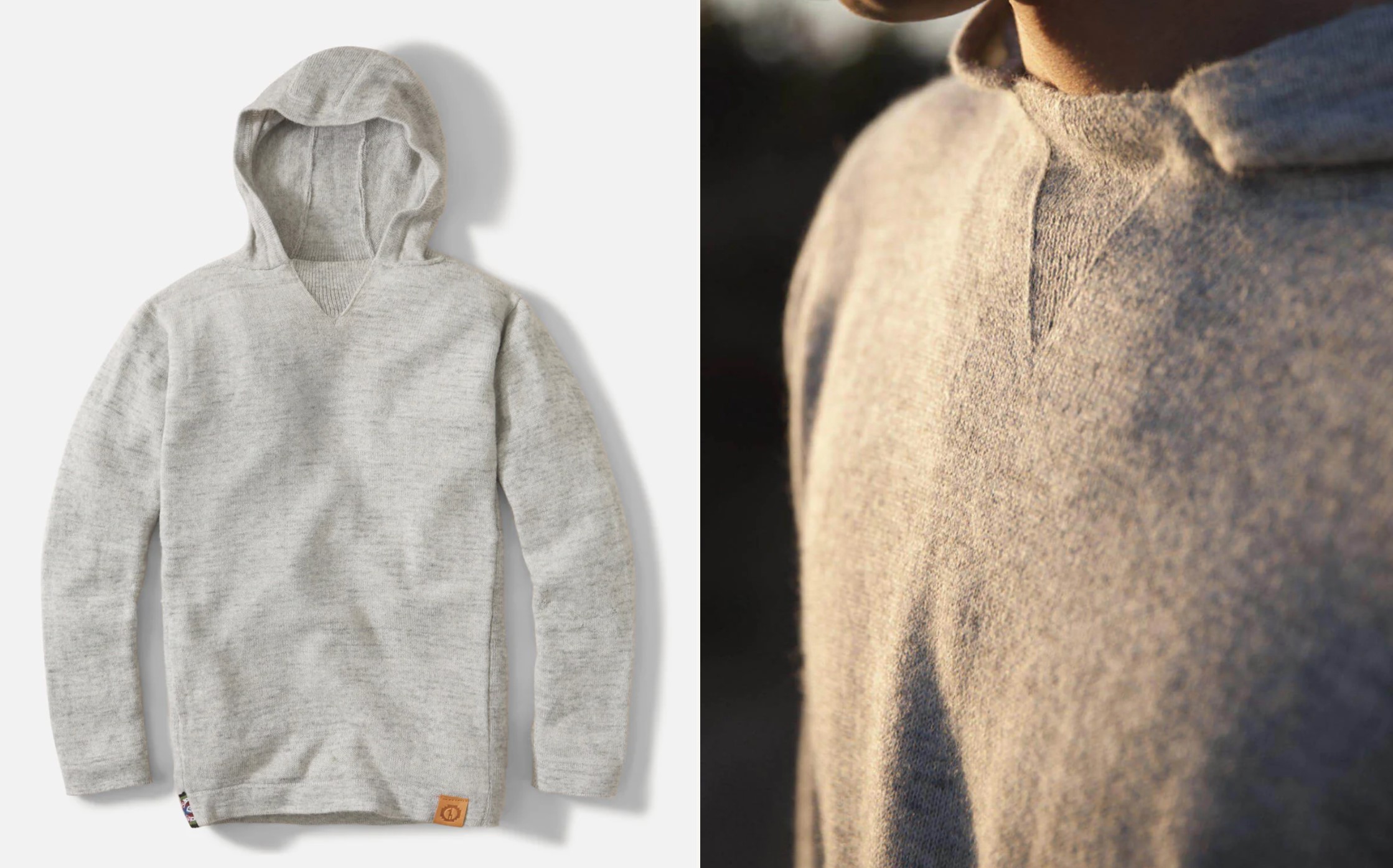
Paka hoodie. Image courtesy of Paka.
North Stars: Certifications, Heritage Value, Waste Management
PAKA, founded in 2016, specializes in clothing made from alpaca fibers sourced from the Andes. Their style is cozy-rugged, with a focus on warmth and comfort outdoor adventures.Think fall on the Mendocino Coast or Pacific Northwest. Each garment is uniquely identified with a traditional Inca tag, handwoven by Quechua artisans in Peru. PAKA is committed to sustainability through the use of traceable, ethically-sourced materials, biodegradable packaging, and supporting local communities by paying fair wages to artisans.
Price Range | $100-150
Best For | Pullover or hoodie
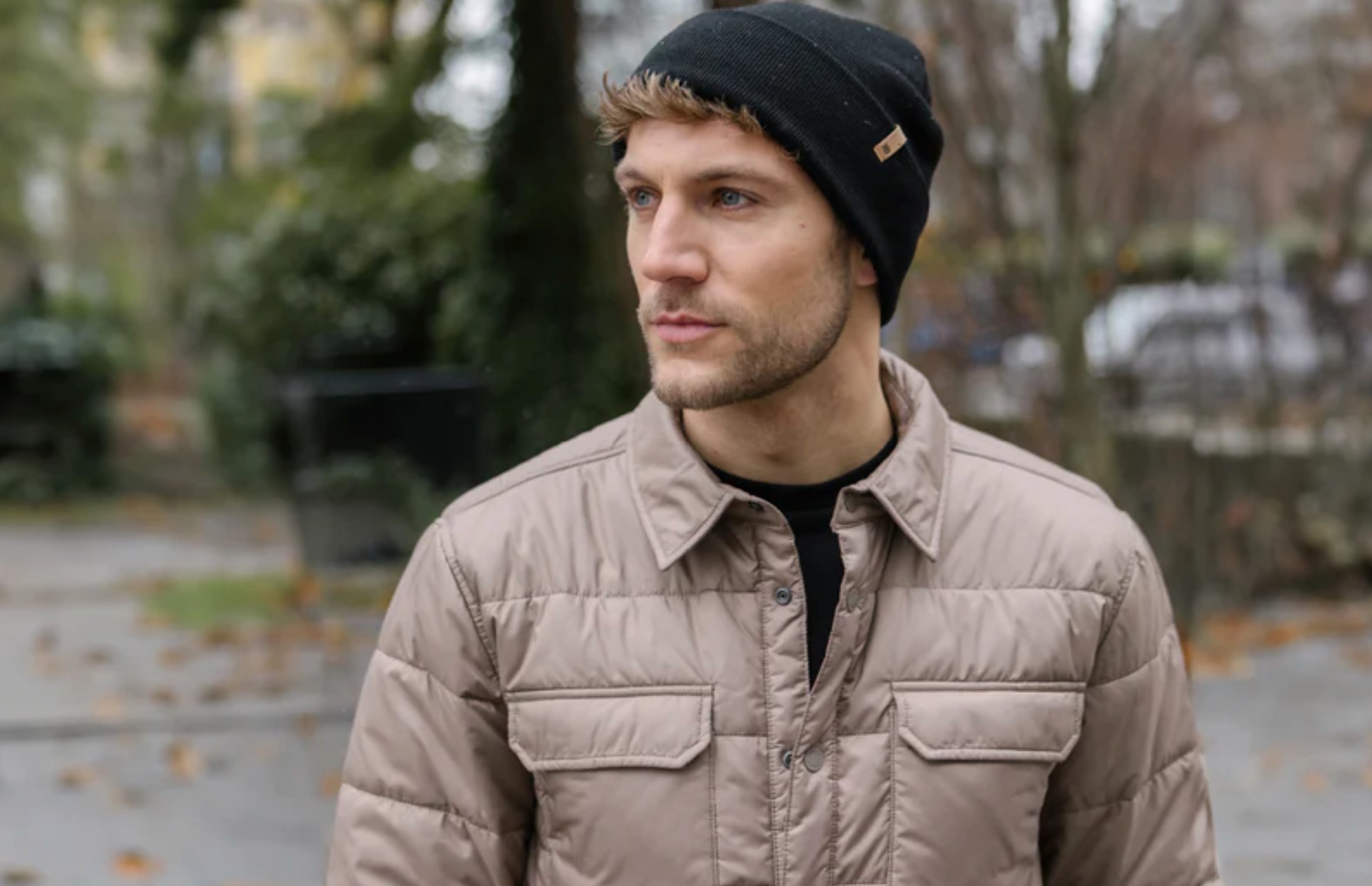
Image courtesy of TenTree.
North Stars: Certifications, Waste Management, Climate Actions
Tentree, founded in 2012, blends casual, modern styles with an eco-conscious mission. They specialize in comfortable everyday essentials like t-shirts, hoodies, and outdoor gear, all crafted from sustainable materials such as organic cotton and recycled fibers. The company plants ten trees for every item sold (ten!), with over 80 million trees planted so far. Tentree also focuses on ethical manufacturing practices and transparency in their supply chain. TenTree offers gently used clothes through ReShop, a resale and recycle program that keeps clothes out of landfills and prices low for shoppers.
Price Range | $20-$250
Best For | Comfortable, casual pants
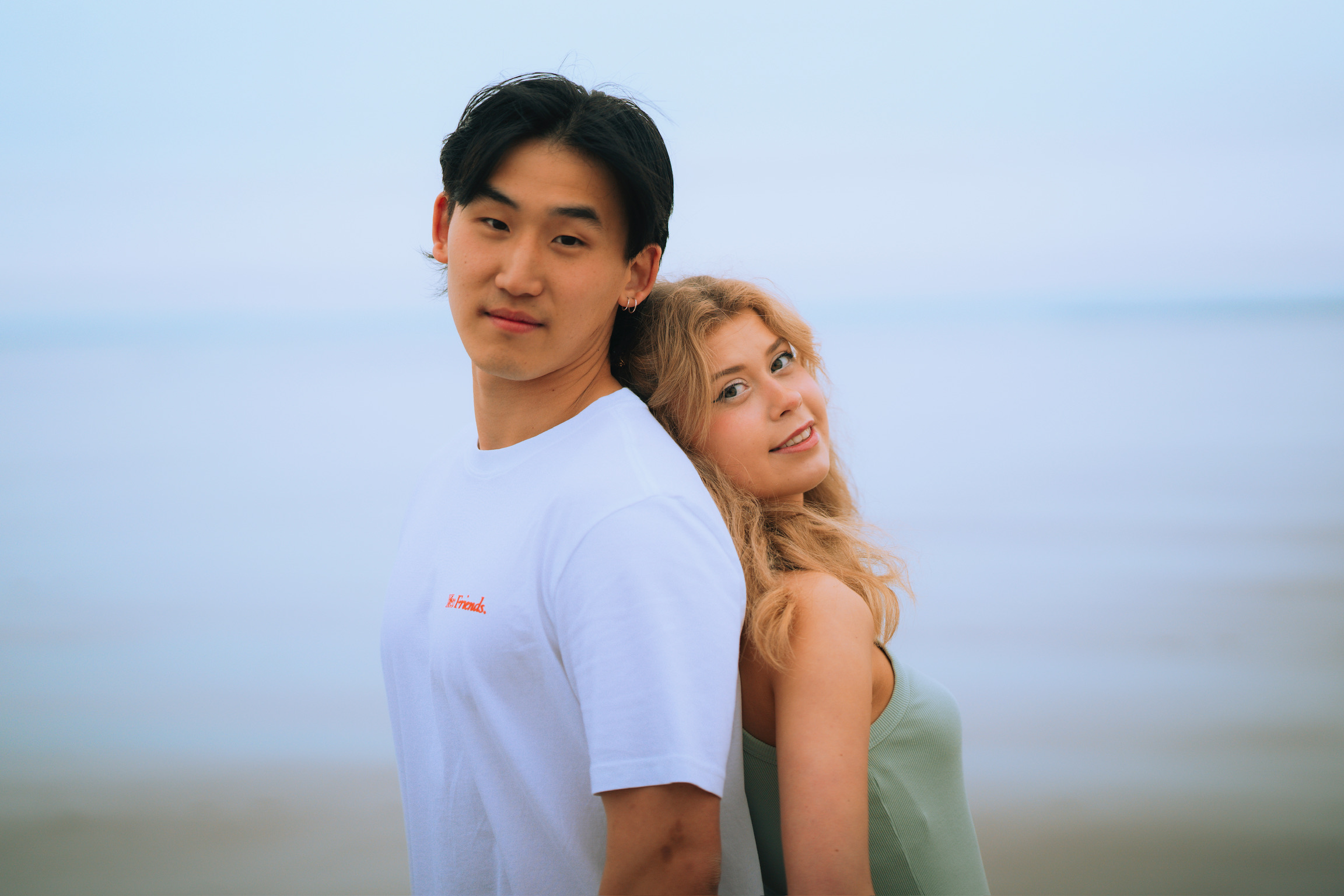
Image courtesy of YES Friends.
North Stars: Certifications, Waste Management, Water Management
Affordable. Ethical. Sustainable. YES Friends bills itself as capable of doing it all. To make ethical fashion accessible to everyone, Yes Friends works with organic cotton suppliers and factories running on solar energy in India. Their factories and suppliers meet or exceed certifications like Fair Trade USA, GOTS, BSCI, and WRAP, which all support ethical supply chains and minimal environmental impact. Popular items include their basics, notably the black t-shirt, a staple in everyone’s wardrobe.
Price Range | $30-$90
Best For | T-shirt Basics
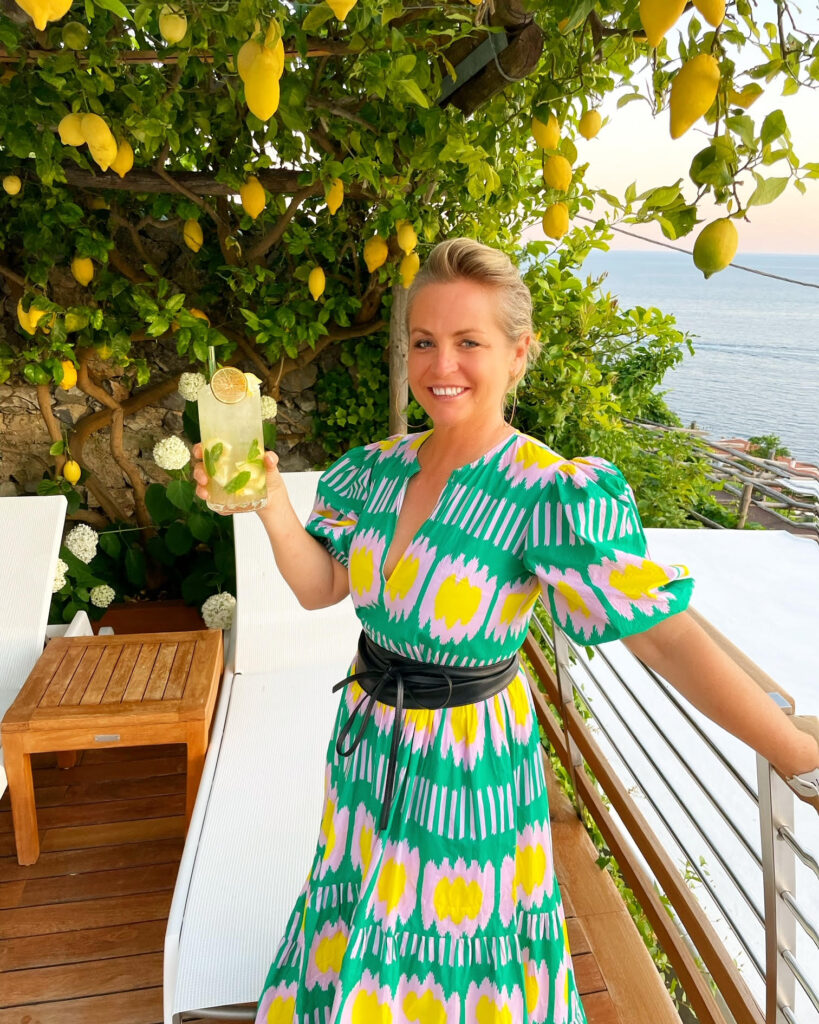
Founder and CEO of Azure Road, Lauren Mowery is a longtime wine, food, and travel writer. Mowery continues to serve on Decanter Magazine’s 12-strong US editorial team. Prior to joining Decanter, she spent five years as the travel editor at Wine Enthusiast. Mowery has earned accolades for her writing and photography, having contributed travel, drinks, food, and sustainability content to publications like Forbes, The Independent, Saveur, Hemispheres, U.S. News & World Report, SCUBA Diving, Plate, Chef & Restaurant, Hotels Above Par, AAA, Fodors.com, Lonely Planet, USA Today, Men’s Journal, and Time Out, among others.
Pursuing her Master of Wine certification, she has also been a regular wine and spirits writer for Tasting Panel, Somm Journal, VinePair, Punch, and SevenFifty Daily. Mowery is a graduate of the University of Virginia and Fordham Law School, and she completed two wine harvests in South Africa.
Follow her on Instagram @AzureRoad and TikTok @AzureRoad


